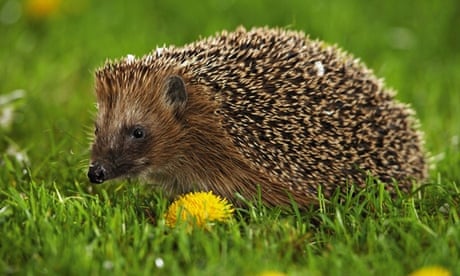Every year there are attempts by exotic pet breeders to restart a craze that swept the US in the early 1990s. Back then, African pygmy hedgehogs (APH) were, for a short while, the must-have fad pet. Everyone wanted one and some people made plenty of money importing and selling them. Then, like all fad pets before them, their popularity waned.
Now one breeder in the US is claiming a massive resurgence of interest in the animals. In the past six months there has also been a 5% rise in UK ownership, according to the African pygmy hedgehog registry.
As a hedgehog ecologist, I really hope this trend doesn't take off again, despite the very real cuteness of these animals, and the undoubted pleasure of being able to handle one. Leaving aside the ethics of the exotic pet industry, there are some important reasons why we should not encourage the pet hedgehog craze in the UK.
Firstly, there is a depressing inevitability that unscrupulous people will pick up wild hedgehogs and try to sell them on (there is evidence that they already have). British hedgehogs are wild animals and are not suitable pets. Most of the APHs for sale are captive-bred and some can tolerate handling, but there are also many who are vicious bombs of prickles, with sharp teeth that they are only too eager to sink into any available flesh.
Secondly, people get bored of their pet hedgehogs. They are nocturnal, like to move around a lot and need a wheel on which to run. They also tend to poop as they run and end up smearing the wheel and themselves in faeces that will need to be cleaned up every day.
Boredom with your pet will result in a desire to get rid of it. Even though APHs are a different species to the hedgehogs we have in the UK and unsuited to the British climate, people tend to release them into the wild, or hand them in to hedgehog carers. Already overstretched, these volunteers end up with another mouth to feed – and one that cannot be set free.
But the main reason why this trend should not be encouraged is that we already have hedgehogs that are in need of help. The UK's hedgehog population has fallen by 37% in the past 10 years – a faster rate of decline than that being experienced by tigers in the wild. At the moment, we can still get the thrill of having a nose-to-nose encounter with the European hedgehog – a species that allows us to get much closer to it than pretty much any other wild animal.
But this will become a less common treat if we do not deal with the threats hedgehogs face. So, rather than paying exotic pet breeders, have a look at Hedgehog Street, the project I helped set up a couple of years ago and learn how you could experience the delight of wild hedgehogs in your garden.

Comments (…)
Sign in or create your Guardian account to join the discussion